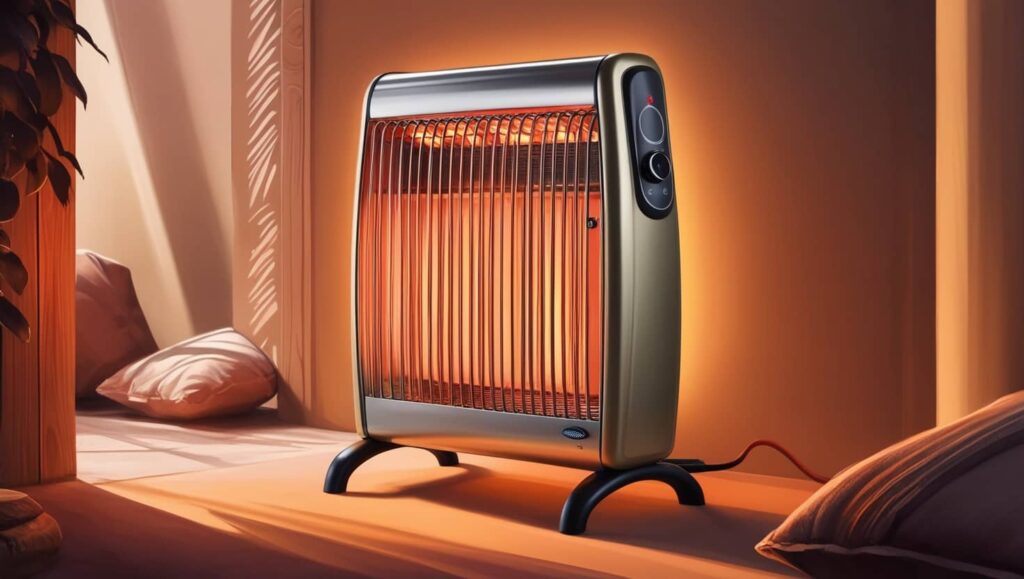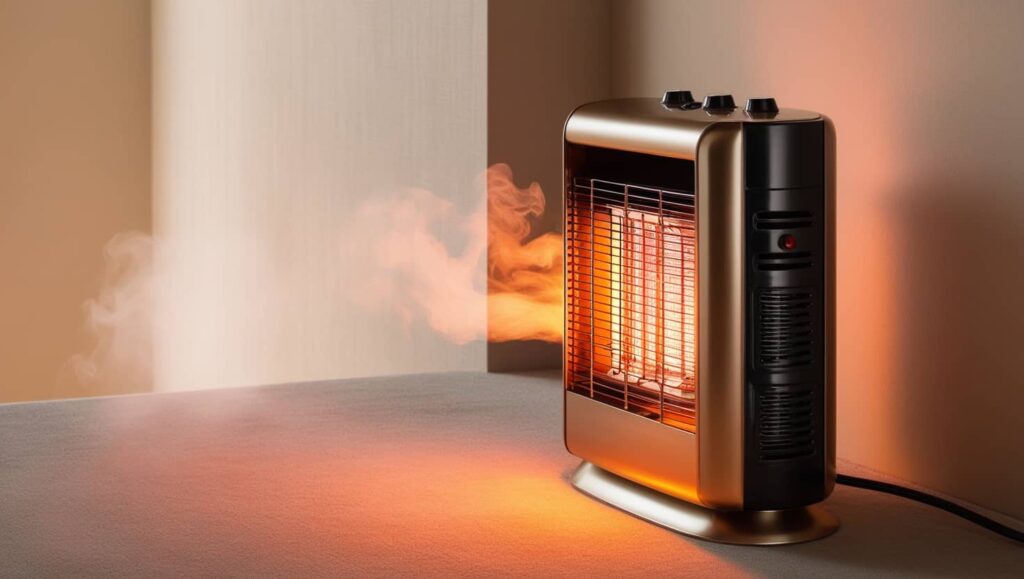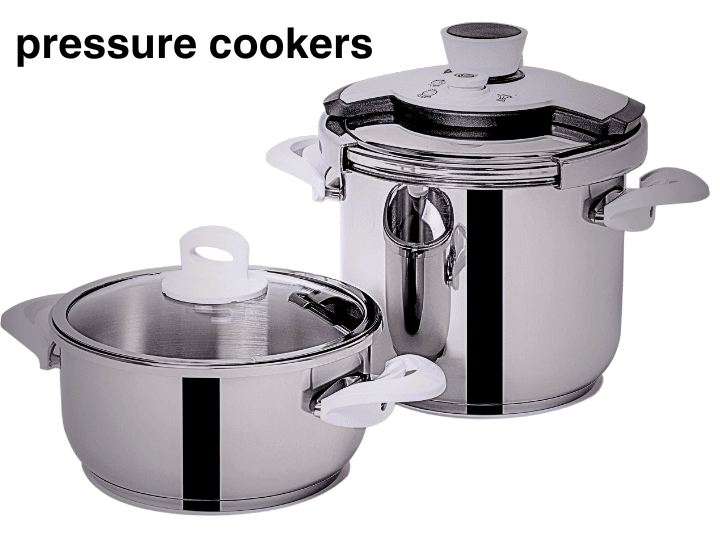When temperatures drop, finding the perfect electric room heater can make all the difference in keeping your space cozy and comfortable. But with so many options out there, how do you pick the right one?
From understanding your space’s needs to considering energy efficiency and safety, here’s everything you need to know to select the best electric heater for your home.

Contents
Types of Electric Room Heaters
Not all heaters work the same way, so let’s take a look at the four main types and what they’re best suited for:
Convection Heaters
Convection heaters warm the air and are excellent for heating up entire rooms slowly but consistently. They’re great for medium to large spaces and are typically energy-efficient. However, if you’re looking to warm up quickly, convection heaters might feel a bit slow since they’re designed for steady, even warmth over time.
Radiant Heaters
Radiant heaters are ideal if you want instant warmth directed at you. They’re perfect for small spaces or for keeping right by your side in a larger room. Just remember, radiant heaters are best for close-range heating—if you’re sitting a bit farther away, you might not feel the warmth as effectively.
Fan Heaters
Fan heaters offer quick heat and are great for small to medium-sized rooms. They’re compact and typically lightweight, making them easy to move around. However, they can be a bit noisy, so keep that in mind if you need a quiet space.
Oil-Filled Heaters
Oil-filled heaters work by heating up the oil inside, which then radiates heat throughout the room. They take longer to warm up but provide steady, consistent heat for hours. These heaters are great for long-term use in spaces where you need low-maintenance warmth without worrying about it drying out the air.
Key Factors to Consider When Choosing a Heater
Choosing the right heater goes beyond picking a type. Here are some crucial factors to help you find the one that best meets your needs:
Room Size
Consider the size of your room. Most heaters will indicate the square footage they’re designed to cover, so match the heater’s output with the size of your space. A heater that’s too small will struggle to warm up a large room, and an oversized heater in a small space may feel overwhelming (and use more power than necessary).
Energy Efficiency
Heating can be a big part of your electric bill, so looking for an energy-efficient model can help keep costs down. Some heaters come with energy-saving settings, eco-modes, or even timers that automatically shut off after a set period. It’s an investment that could save you money over time.
Safety Features
Safety is essential, especially if you have kids or pets at home. Look for models that have tip-over protection, which automatically turns the heater off if it falls. Overheating protection is another valuable feature, ensuring the heater shuts off if it gets too hot.
Portability and Design
Think about where you’ll use the heater and if you need to move it around. Some heaters come with wheels or handles to make this easier. Also, consider the design—choose something that complements your decor and fits well in your space.
Special Features to Look For
Some features can make your heater even more convenient and enjoyable to use:
Thermostat Controls
Having adjustable thermostat controls can help maintain a comfortable temperature without overheating the room. This feature also contributes to energy savings, as the heater will turn off once the room reaches the desired warmth.
Timers and Remote Controls
A timer allows you to set your heater to run for a specific time, which is handy if you only want to warm up a room temporarily. Remote controls add extra convenience, letting you adjust the settings without getting up.
Noise Level
Fan heaters can be louder than others, while oil-filled and some convection heaters are nearly silent. If you’re using the heater in a bedroom or office, look for a model with a quiet operation rating.
Pros and Cons of Electric Room Heaters
To make a well-rounded choice, let’s look at some general advantages and disadvantages of electric room heaters:

Advantages
- Convenience: Electric heaters are easy to set up and move around.
- No Fuel Required: No need to worry about fuel; just plug them in.
- Variety: There are different types to suit various needs and spaces.
Disadvantages
- Cost of Electricity: Electric heating can be more costly compared to some other options, especially for large rooms.
- Limited Range: Some models may struggle to heat larger or open areas effectively.
Tips for Efficient Use
A few smart habits can help you get the most from your heater while keeping energy costs down:
Close Doors and Windows
Make sure to keep your room enclosed when the heater is on to avoid heat loss and improve efficiency.
Use in Moderation
Heaters don’t need to be on 24/7. Use timers, thermostats, or switch them off when you’re not in the room to save on energy.
Regular Maintenance
Dust can reduce heater efficiency, so keep it clean. For fan-based models, clean the vents periodically to ensure good airflow.
Choosing the right electric room heater can turn a chilly room into a cozy retreat. Think about your room size, the type of warmth you need, and any special features that matter most to you. With the right heater, you’ll stay warm and comfortable all winter long without breaking the bank on heating bills.
This guide should give you everything you need to make a confident, informed choice. Stay warm and happy heating!



